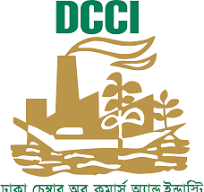The Dhaka Chamber of Commerce & Industry (DCCI) has urged the government to introduce a specific policy framework to unlock Bangladesh’s toy manufacturing export potential, as the global toy market continues to grow beyond USD 100 billion.
At a focus group discussion titled “Diversifying the Export Basket: Innovation, Export Potential and Market Expansion of the Toy Manufacturing Industry” held on September 23, 2025, at the DCCI auditorium, speakers said Bangladesh exported toys worth only USD 77 million in FY 2022–23 despite having strong prospects.
DCCI President Taskeen Ahmed said the sector faces major challenges, including lack of policy support, high tariffs on imported raw materials, absence of bonded facilities, insufficient testing infrastructure, and inadequate market access. He stressed the need for greater involvement of academia in innovation and stronger coordination among government agencies.
Muhammad Mubinul Kabir, Member (Customs: Policy & ICT) of the National Board of Revenue (NBR), said Bangladesh must diversify its export basket to remain competitive in the post-LDC era. He noted that while the RMG sector has enjoyed policy support for four decades, emerging sectors like toy manufacturing should focus more on innovation and skill development. He added that NBR aligns its tariff policies with global best practices and donor agency recommendations, leaving limited scope for mid-year adjustments but possible policy support in the upcoming budget.
Martin Dawson, Deputy Development Director of the British High Commission in Dhaka, highlighted strong demand for Bangladeshi toys in the UK market. He said if existing barriers are addressed, exports could multiply, supported by simplified Rules of Origin requirements and customs procedures.
Presenting the keynote paper, Shamim Ahmed, President of Bangladesh Plastic Goods Manufacturers & Exporters Association (BPGMEA), said Bangladesh has around 250 toy manufacturers within its 5,000-strong plastics industry, employing 1.5 million people. Toy exports rose from USD 15.23 million in FY 2016–17 to USD 77 million in FY 2022–23, reaching 88 markets worldwide. However, he pointed to hurdles including lack of quality assurance, weak infrastructure, limited research, and poor design innovation. He called for cluster development, joint ventures, human resource training, and toy-specific policy support.
Other industry leaders echoed similar concerns. They cited high production costs due to tariffs on raw materials, lack of intellectual property protection, and weak supply chain systems as key barriers. Officials from the Department of Environment (DoE) and Ministry of Industries noted ongoing regulatory support such as fee exemptions for green industries but urged businesses to adopt patents, designs, and trademarks to remain competitive in the post-LDC transition.
DCCI Senior Vice President Razeev H Chowdhury, Vice President Md. Salem Sulaiman, and members of the board of directors attended the programme, along with representatives from government bodies, development partners, and toy manufacturers.

